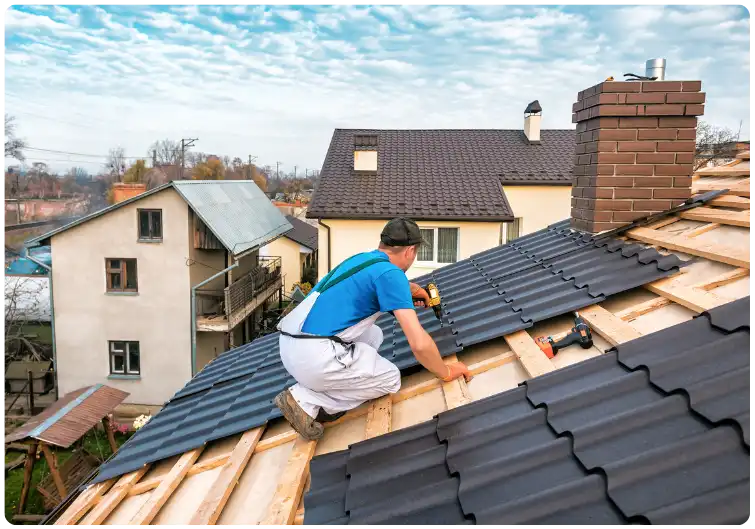Navigating the intricacies of roofing laws in Florida can be daunting, but it’s crucial for homeowners and contractors to stay informed. With recent changes in legislation, understanding these new roofing laws is essential for compliance, safety, and efficiency. This blog post will delve into the key aspects of these laws, ensuring you are well-prepared to handle any roofing project within the legal framework.
The Importance of Roofing Laws
Why Roofing Laws Matter
Roofing laws are designed to protect homeowners, contractors, and the general public by ensuring that all roofing work meets specific safety and quality standards. These regulations help to:
- Ensure safety: By adhering to building codes and standards, roofing laws minimize the risk of accidents and structural failures.
- Protect investments: Properly installed roofs last longer and perform better, protecting the homeowner’s investment.
- Maintain quality: Laws ensure that only qualified contractors perform roofing work, maintaining high standards across the industry.
Recent Changes in Florida’s Roofing Laws
Recent updates to Florida’s roofing laws have introduced several important changes aimed at improving the safety and quality of roofing work. These changes include stricter licensing requirements for contractors, enhanced inspection protocols, and new guidelines for insurance claims related to roofing damage.

Key Aspects of the New Roofing Laws
Licensing Requirements
One of the significant changes in Florida’s roofing laws is the enhancement of licensing requirements. All roofing contractors must now:
- Pass a comprehensive exam: Demonstrating their knowledge of roofing practices, safety protocols, and building codes.
- Complete continuing education: Regularly update their skills and knowledge to stay current with industry standards and technological advancements.
- Maintain proper insurance: Ensure they have adequate insurance coverage to protect both themselves and their clients.
Inspection Protocols
The new laws have also introduced more rigorous inspection protocols to ensure compliance and safety:
- Initial Inspections: Before any roofing work begins, an initial inspection is required to assess the existing condition of the roof and determine the scope of work needed.
- During Construction: Periodic inspections during the construction process ensure that the work complies with all relevant codes and standards.
- Final Inspection: A comprehensive final inspection is conducted to verify that the completed roofing work meets all safety and quality requirements.

Insurance Guidelines
The updated laws provide clearer guidelines for insurance claims related to roofing damage:
- Documentation: Homeowners must provide detailed documentation of the damage, including photos and reports from licensed inspectors.
- Timelines: Insurers are required to respond to claims within a specified timeframe, ensuring that repairs can be made promptly.
- Coverage: The laws outline what types of damage are covered under standard homeowner insurance policies, helping to avoid disputes between homeowners and insurers.
Benefits of the New Roofing Laws
Enhanced Safety
By requiring more rigorous inspections and higher standards for contractor licensing, the new laws significantly enhance the safety of roofing projects. This reduces the risk of accidents and ensures that roofs are built to withstand Florida’s harsh weather conditions.
Improved Quality
With stricter licensing and inspection protocols, the quality of roofing work in Florida is expected to improve. This means fewer issues for homeowners, longer-lasting roofs, and a higher standard of professionalism within the industry.
Streamlined Insurance Processes
The new guidelines for insurance claims aim to streamline the process, making it easier for homeowners to get the coverage they need for roofing repairs. This reduces the financial burden on homeowners and ensures that necessary repairs are made promptly.

Challenges and Considerations
Compliance Costs
While the new laws bring many benefits, they also come with increased costs for compliance. Contractors may face higher expenses related to licensing, insurance, and meeting the enhanced inspection requirements. These costs are often passed on to homeowners, potentially increasing the overall cost of roofing projects.
Staying Informed
Staying informed about the new roofing laws is crucial for both homeowners and contractors. Regularly reviewing updates from regulatory bodies and attending industry seminars can help ensure compliance and avoid potential legal issues.
Interactive FAQ Section
What are the key changes in Florida’s roofing laws?
- Enhanced Licensing Requirements: Stricter exams and continuing education for contractors.
- Rigorous Inspection Protocols: Initial, periodic, and final inspections are now mandatory.
- Clearer Insurance Guidelines: Improved documentation and response timelines for claims.
How do the new laws affect homeowners?
- Safety and Quality: Homeowners can expect higher safety and quality standards for roofing projects.
- Cost: Increased compliance costs may result in higher project costs.
- Insurance Claims: Streamlined processes for insurance claims related to roofing damage.
What should contractors do to comply with the new laws?
- Stay Licensed and Insured: Ensure all licensing and insurance requirements are met.
- Regular Education: Participate in continuing education programs.
- Follow Inspection Protocols: Adhere to all inspection requirements during roofing projects.
How can homeowners ensure their roofing project complies with the new laws?
- Hire Licensed Contractors: Verify the contractor’s license and insurance status.
- Request Inspections: Ensure all required inspections are conducted.
- Keep Documentation: Maintain detailed records of the project and any communications with insurers.
Conclusion
Understanding and complying with the new roofing laws in Florida is essential for both homeowners and contractors. These laws are designed to enhance safety, improve the quality of roofing work, and streamline insurance processes. By staying informed and adhering to these regulations, you can ensure that your roofing projects are successful and compliant with state standards. For more information or to get started on your roofing project, contact PRS Roofing today for expert guidance and services.


